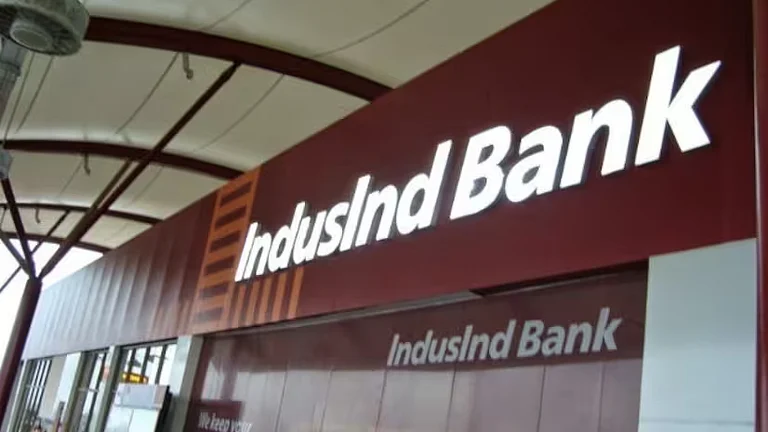Recent allegations of fund diversion at Gensol Engineering and long-ignored accounting lapses at IndusInd Bank have reignited the debate over corporate governance framework in India. While the country’s regulatory framework already prescribes several safeguards, these incidents raise the question whether the company boards, especially independent directors, are vigilant enough to oversee and enforce compliance.
What the Gensol and IndusInd Saga Tells Us About Corporate Governance in India
While the country’s regulatory framework already prescribes several safeguards, these incidents raise the question whether the company boards, especially independent directors, are vigilant enough to oversee and enforce compliance
A quick Recap
Last week, SEBI barred the founders of Gensol from the securities market, citing inconsistencies that misled investors. The promoters — Anmol Singh Jaggi and Puneet Singh Jaggi — were found to have siphoned off company funds for personal use, including purchasing some of the most expensive real estate in New Delhi. The market regulator found that a Rs 71 crore green loan taken by Gensol in September 2022 for EV purchases was partially diverted to buy a luxury apartment in DLF’s The Camellias, Gurgaon. The funds were routed through several entities — first to Go-Auto, a related car dealer, then Rs 50 crore to Capbridge, a Gensol affiliate, which transferred Rs 42.94 crore to DLF as payment for the flat. SEBI also flagged multiple loan defaults by Gensol that were not disclosed to credit rating agencies between December 2024 and February 2025.
Further investigation is underway against them as some investors in their ride-hailing EV venture, BluSmart, are reportedly planning to approach the Economic Offences Wing (EOW). The Enforcement Directorate (ED) is reportedly planning to examine Gensol under the Prevention of Money Laundering Act (PMLA), on the behest of Ministry of Corporate Affairs.
Meanwhile, last month, IndusInd Bank informed stock exchanges that it had noticed some deficiencies in accounts of its derivatives folio. This, as per the bank’s estimate, adversely impacts 2.27% of its net worth as of December 2024 or about Rs 1,979 crore. The bank’s net worth stood at about Rs 65,102 crore as of December 31, 2024. Interestingly, just days before the Hinduja Group-owned bank reported the lapse, the Reserve Bank of India granted CEO Sumant Kathpalia a one-year extension—shorter than the three-year extension recommended by the bank’s board.
“The Gensol matter underscores the critical need for robust corporate governance frameworks, particularly in relation to transparency and accountability in related-party transactions. It highlights the risks that arise when promoter-led entities operate without sufficient checks and balances,” said Rajesh Sivaswamy, Senior Partner at King Stubb & Kasiva, Advocates and Attorneys, a New Delhi based corporate law firm.
Board’s Mandate
Legal experts say that it’s the board of directors’ job to oversee the conduct of management and ensure adherence to governance norms.
“It’s the board’s duty to scrutinise significant transactions, especially related-party ones, to ensure they are in the best interests of the company. Boards must act as active stewards, not passive observers,” said Sivaswamy.
Amit Kumar Nag, Partner at AQUILAW, a New Delhi based law firm, emphasised that independent directors must go beyond symbolic roles.
“They must ensure executive directors are held accountable. The audit committee should include members with financial acumen and integrity to detect fraud,” he said. “A strong whistle-blower policy is also crucial to enable early reporting of misconduct.”
Following SEBI’s order against Gensol Engineering Ltd (GEL), independent directors Arun Menon, Harsh Singh, and Kuljit Singh Popli have stepped down, leaving the board with just two members. The resignations come after some of them raised concerns about related-party transactions and rising debt due to the company's aggressive expansion into sectors like EV leasing and manufacturing.
Arun Menon, in his resignation letter, said he repeatedly sought clarity on Gensol’s debt structure and offered to help with restructuring, but received no meaningful response from the promoters. He flagged unsustainable debt levels being used to fund other businesses.
“While you (Anmol Singh Jaggi) had messaged me that you would call back, it never progressed," Menon wrote in the letter, which was posted to the stock exchanges on April 16.
Former audit committee chair Rajesh Jain also resigned earlier in March, suggesting the company needed “necessary guidance in such a fast growth environment.”
According to Vaibhav Kakkar, Senior Partner at Noida-based legal services firm Saraf and Partners, India’s regulatory framework already prescribes several safeguards in case of fund diversion—such as independent audits, related-party transaction oversight, and fiduciary duties.
“But enforcement and board-level vigilance must improve. Shareholders can independently raise claims for oppression and mismanagement, or even initiate class action suits—though these are still nascent in India,” Kakkar says.
Notably, in February, India’s second-largest ATM operator, AGS Transact Technologies Ltd, saw a similar pattern unfold when the company admitted to defaulting on bank loans and delaying staff salaries due to a cash crunch. All four independent directors at the company resigned in quick succession, citing “personal reasons.”
Actions have consequences
Legal experts also warn that promoters involved in misconduct face serious consequences.
“Under the Companies Act, fraud is punishable with imprisonment of up to 10 years and fines up to three times the amount involved. Promoters can also be disqualified from holding directorships and debarred from public markets,” said Poonam Sharma, Partner at law firm Bombay Law Chambers.
Sharma pointed out that legal remedies for investors include class action suits, complaints to the National Company Law Tribunal (NCLT), or approaching SEBI via the SCORES platform. “In private firms, investor protections like ‘event of default’ and clawback clauses are built into shareholder agreements to hold promoters accountable.”
Aviral Kapoor of Alagh & Kapoor highlighted that failure to disclose material financial discrepancies violates both SEBI’s LODR regulations and the Companies Act.
“Penalties include fines, trading suspensions, and possible prosecution. Investors can initiate class actions or petitions under Sections 241–245 of the Companies Act,” he said.
Red Flags For The Auditor
“Discrepancies in stock versus purchase records, and insufficient documentation should prompt deeper scrutiny,” says AQUILAW’s Nag. He added that an increase in related-party transactions of a company should put auditors on high alert as this is an early sign of siphoning of funds that may be taking place within the company.
In Gensol’s case, as per Sivaswamy, several red flags may have warranted further scrutiny, including significant financial transactions between related parties without a clearly established business purpose, absence of documented board or shareholder approval, delayed or insufficient disclosures in financial statements, and non-standard accounting treatment or classification of related-party receivables and advances.
“Auditors have a duty not only to ensure compliance with accounting standards but also to flag any transactions that may indicate governance lapses or potential financial misstatements,” he said.
IndusInd Awaits Forensic Audit Report
In IndusInd Bank’s case, the lender is awaiting a forensic audit report by Grant Thornton, which is reportedly looking at missing entries in Calypso—the bank’s treasury management system. Calypso is a widely used global platform for trading, risk management, and accounting across asset classes.
According to a report by The Economic Times (ET), Grant Thornton Bharat’s focus is how the bank recorded ‘internal hedges’—mirror transactions between its asset-liability management desk and its treasury, which corresponded to external forex derivative contracts. Grant Thornton is investigating whether these internal deals were recorded outside Calypso, possibly in separate Excel files, thereby bypassing the centralised system meant to consolidate treasury activities.
Earlier, Ashok P. Hinduja, chairman of the bank’s promoter group IndusInd International Holdings Ltd (IIHL), expressed concerns about the bank’s governance.
“Whenever such issues come up, how can I say I’m comfortable? I am not comfortable. Because with such things happening over the last 5–7 years, nobody would be. But unless I get a report—which will reveal whether it was a governance issue, a technical lapse, or intentional wrongdoing—we won’t know. After all, audits have taken place over the years,” he said in an interview with The Hindu BusinessLine.
In the days leading up to the PwC report, which was hired as an external reviewer to reassess the impact of accounting lapses, IndusInd Bank relieved Deputy CEO and Executive Director Arun Khurana of his additional responsibilities as Chief Financial Officer (CFO) effective April 17, 2025. He had assumed the additional responsibility of CFO on January 21, 2025, following the resignation of the previous CFO, Gobind Jain.
Subsequently, the bank appointed Chief Accountant Santosh Kumar as Deputy CFO and Special Officer – Finance & Accounts, effective April 18, 2025. Kumar will lead the finance and accounts functions until a full-time CFO is appointed.
Eroding Investors Trust
A day after IndusInd Bank reported the accounting discrepancy, its shares tumbled from over Rs 900 apiece to around Rs 655 on March 11. Although the scrip has regained most of these losses, currently trading at around Rs 788 as per April 22 closing hour, analysts say that an accounting discrepancy that remained undetected for 5–7 years will impact the street’s confidence in the bank’s governance.
“The fact that long-standing derivatives accounting discrepancies remained undetected for 5–7 years raises concerns over internal controls, impacting the street’s confidence in the bank’s governance. Secondly, elevated stress in the microfinance portfolio and the street’s eagerness to see the new CEO designated—along with clarity on his strategies—adds to the uncertainty," said online trading platform Ventura in a report last month.
Mirae Asset ShareKhan also gave a similar assessment, forecasting a “near-term uncertainty” as the bank’s earnings visibility is expected to be muted for FY26 due to weak MFI cycle and stress in other unsecured retail segments even as the stock’s “valuations appear to be cheap”.
“Most importantly, building the credibility of the franchise will take time,” said the March report.
Meanwhile, for Gensol Engineering whose shares were already on a downward path, they have further plunged over 53% in the past one month. And its lenders IREDA and PFC are reportedly planning to take the company into insolvency to recover Rs 311.5 crore and Rs 352.4 crore debt respectively. These loans were given for buying electric cars between FY22 and FY24.
While the forensic audit report of Grant Thornton is awaited to see what further action regulators take on IndusInd Bank, reports say Gensol, BluSmart, and its promoter seem to be amid an eye of regulatory scrutiny. Their share value shows that the sagas have eroded investors’ trust—in Gensol’s case quite extensively. The question is: could better corporate governance have prevented it?

